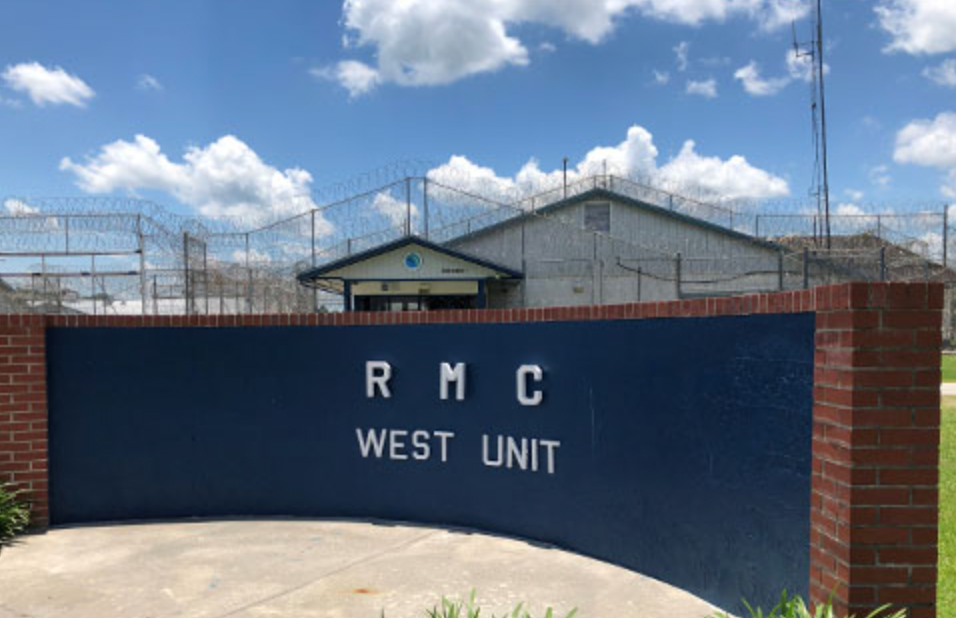Florida inmate died of broken neck after being tackled by correctional officers
Craig Ridley’s cause of death was determined to be a homicide caused by blunt impact to the head and neck, but no criminal charges were ever filed in the case

Your support helps us to tell the story
From reproductive rights to climate change to Big Tech, The Independent is on the ground when the story is developing. Whether it's investigating the financials of Elon Musk's pro-Trump PAC or producing our latest documentary, 'The A Word', which shines a light on the American women fighting for reproductive rights, we know how important it is to parse out the facts from the messaging.
At such a critical moment in US history, we need reporters on the ground. Your donation allows us to keep sending journalists to speak to both sides of the story.
The Independent is trusted by Americans across the entire political spectrum. And unlike many other quality news outlets, we choose not to lock Americans out of our reporting and analysis with paywalls. We believe quality journalism should be available to everyone, paid for by those who can afford it.
Your support makes all the difference.Florida guards broke an inmate’s neck and denied him treatment for five days, before he died a month later, according to a new report.
Craig Ridley, 62, died as a result of injuries he sustained when he was tackled down to the ground by Captain William Jerrels on 8 September 2017, The Miami Herald reported. Video recorded by guards and obtained by the Herald shows Mr Ridley, an army veteran, telling officers that he believed his neck was broken.
“Your blood pressure and all is fine. You ain’t paralysed,” an officer can be heard saying.
Mr Ridley’s injuries at Reception and Medical Center in Lake Butler were largely ignored by staff, a review by the Florida Department of Law (FDLE) found. For days after Mr Ridley was assaulted, he was left in his confinement cell without medical treatment, as guards and nurses passing by his cell dismissed fellow inmates’ concerns for him.
FDLE also reviewed video of an officer apparently mocking Mr Ridley by moving his head, and a fellow inmate who was interviewed by the department reportedly said that another inmate twisted Mr Ridley’s head as staff watched and didn’t do anything.
Blatantly disregarding the untouched food trays and the fact that Mr Ridley would fall to the floor when he was placed on the toilet, medical staff only called for his transport to a hospital five days after he was left paralysed. Efforts to stabilise him failed and Mr Ridley succumbed to his injuries on 12 October 2017.
Mr Ridley’s cause of death was determined to be a homicide caused by blunt impact to the head and neck, but no criminal charges were ever filed against the officers or medical staff who treated Mr Ridley.
The Herald surfaced the shocking details after Mr Ridley’s family’s yearslong fight to uncover the circumstances around their loved one’s death.
The report also comes a year after Mr Ridley’s daughter filed a civil lawsuit against Florida’s Department of Corrections secretary and correction officers and medical staff involved in the incident.
Mr Ridley was attacked by Mr Jerrels when the inmate allegedly tried to hit him. The army veteran was a kitchen worker at the facility, and was serving a 20-year sentence for firing two rounds at his employer’s business door after an argument about salary.
Inmates interviewed by FDLE attested to his character and a correctional officer called him “a model inmate.”
A spokesperson for FDLE told the Herald in a statement that the circumstances that led to MrRidley’s death do not represent the department’s policies and it had “have learned from [the case.]”
“This was an inhumane death caused by an abysmal lack of medical treatment,” Diane Ridley Gatewood, Mr Ridley’s sister, told the Herald. “It was torture.”
The report by FDLE also found that a nurse and a doctor determined Mr Ridley’s injuries did not require medical treatment without conducting neurological testing. They were not directly employed by the facility and are no longer staffed there, the spokesperson told the Herald.
Correction officials also produced documents and forged Mr Ridley’s signature to fill out meal forms stating that Mr Ridley was eating adequately.



Join our commenting forum
Join thought-provoking conversations, follow other Independent readers and see their replies
Comments